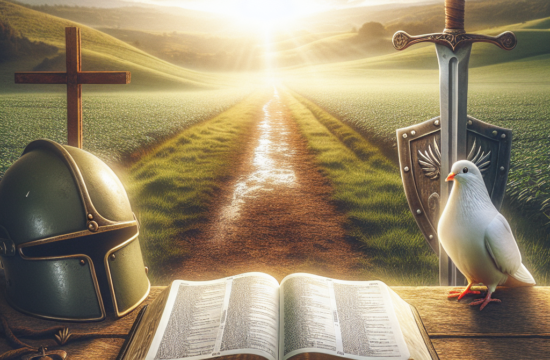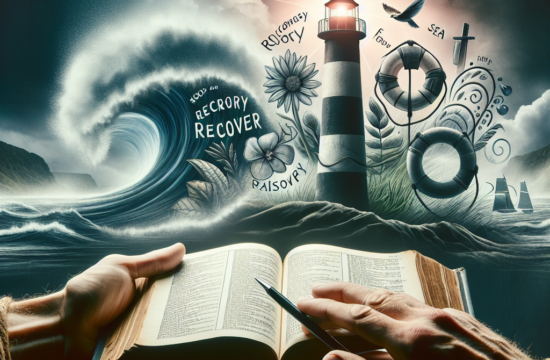==> Thank you for reading this post! Click Here If you are looking for support and Victory over PTSD.
Understanding PTSD
What is PTSD?
Post-Traumatic Stress Disorder, or PTSD, is something many people don’t quite get. It’s that feeling of being haunted by past events, reliving them over and over again. I remember when I first heard about PTSD—I thought it only affected military personnel. But the truth is, it can hit anyone who has faced trauma, whether from car accidents, natural disasters, or childhood abuse.
When I started learning more about it, I realized the symptoms can really mess with your head. You might experience flashbacks, nightmares, or just an overwhelming sense of anxiety. It’s like having a storm brewing inside you that just won’t let up.
Understanding what PTSD is and how it manifests is the first step in learning to cope. It’s essential to recognize that you’re not alone, and there’s no shame in seeking help to navigate these turbulent waters.
The Impact on Daily Life
PTSD doesn’t just hang around in the background; it can take over day-to-day life. A simple noise might trigger a memory and send you spiraling. I remember a friend who served in the military; the sound of fireworks would leave him on edge for days. That’s how impactful PTSD can be—it disrupts relationships, jobs, and overall peace of mind.
For anyone grappling with this, it can feel isolating. When people don’t understand what you’re going through, it can lead to frustration and a sense of hopelessness. I’ve found that surrounding myself with supportive friends has made a world of difference in coping.
If you’re in a similar situation, remember this: acknowledging how PTSD affects your life is a vital part of your recovery process. Knowledge is power!
Recognizing the Need for Coping Techniques
When I was deep in my struggles, I realized that I couldn’t just ignore these feelings. Trying to tough it out didn’t work, and it only made my experience more challenging. I lost touch with parts of my identity because I wasn’t addressing the root of my pain.
The moment I accepted that I needed coping techniques was liberating! It was like turning on a light in a dark room. I started looking for ways to manage my symptoms and respond to triggers. Finding coping strategies is crucial because it empowers us, allowing us to take back some control over our lives.
Every journey is personal, but knowing that effective coping techniques exist out there can be a beacon of hope. With the right tools, recovery is not just possible; it can be transformative!
Developing a Support Network
Finding Your Tribe
Navigating the waters of PTSD can feel overwhelmingly lonely, but I’ve discovered that a solid support system can be the lifeline you need. Friends, family, or even support groups can help lighten the load. I remember joining a local group; the moment I walked in, I realized I wasn’t alone. People shared their stories, and for the first time, I felt understood.
Your support network isn’t just about sharing experiences; it’s about having those who will encourage you to keep going. Sometimes, just knowing someone is there makes a world of difference when faced with those tough days.
So, don’t hesitate to reach out. Whether through professional help or close pals, finding your tribe can be a game-changer in managing PTSD.
Professional Help Matters
Don’t underestimate the role of professionals in your journey. I know, I know—seeking help can seem daunting, and there’s stigma attached, but let me tell you, the right therapist can be a massive game-changer. They offer a different perspective—a trained eye to help process what you’re going through.
When I sought counseling, it was a breath of fresh air. Talking through experiences with someone who gets it was incredibly healing. It’s one thing to chat with friends or family; it’s another to have a professional guide you through structured coping strategies.
Never feel shy about seeking professional help—it’s a service you deserve. Investing in yourself is always worth it, especially when tackling PTSD.
Online Resources and Communities
In this digital age, online resources can be your best buddy. I started exploring forums and websites dedicated to PTSD—instant support at my fingertips! There were countless articles, videos, and testimony from others who’ve walked the same path.
Online communities validated my feelings and inspired me to try new coping techniques. The anonymity provided a safe space to share and learn without judgment. It’s amazing how connecting with others on the internet can reduce feelings of isolation.
Take advantage of technology and the vast number of resources available online. You never know what tools might resonate or what new friends you might discover through shared experiences!
Implementing Coping Techniques
Mindfulness and Breathing Exercises
One of my favorite coping techniques is mindfulness. Learning to ground myself in the present moment made all the difference. Simple breathing exercises help calm my racing thoughts and anxiety. Whenever I feel overwhelmed, I pause and breathe deeply, in and out, focusing solely on the rhythm of my breath. It brings a sense of peace that’s hard to describe!
Mindfulness isn’t something that comes overnight; it takes practice. When I first started, it felt awkward and ineffective. But gradually, it became a natural part of my routine—a helpful tool in my recovery toolkit!
If you’re interested, there are several apps available that offer guided mindfulness exercises. I’d definitely recommend giving them a shot, especially when you’re feeling anxious or triggered.
Get Support and Help with Recovery! Visit us for more Information and Support
Physical Activity and Self-Care
Let’s talk about physical activity. For me, regular movement was a game-changer. Whether it’s going for a walk, hitting the gym, or dancing around the house, moving my body helps release built-up tension. I even discovered yoga and how it blends physical and mental well-being—huge win!
Incorporating self-care into your daily routine is essential, too. It can be anything from a warm bath to reading a good book—find what makes you feel good and do more of it. Self-care lets you reconnect with yourself, offering a break from the struggles.
Trust me, making time for physical activity and self-care is not indulgent; it’s a necessity in our healing process. Your body and mind deserve a bit of TLC!
Journaling for Healing
Journaling became my therapy in many ways. Writing down thoughts and feelings offered clarity during some of my darkest moments. It’s like having a conversation with myself, allowing me to sort through my emotions safely. I could pour out all the pain, anxiety, and confusion without judgment.
Plus, looking back through my journal entries helped me track my progress. I could see patterns and jot down things that triggered negative feelings. Over time, I learned to celebrate the little victories, pushing through the tough stuff too.
If you’ve never tried it, I encourage you to give journaling a go! It can be whatever you want it to be—creative, structured, or simply an emotional release. You might be surprised by how freeing it is!
Embracing Recovery as a Journey
Be Patient with Yourself
Recovering from PTSD isn’t a race; it’s a journey. I often found myself frustrated during slower moments, feeling like I’d taken one step forward and three steps back. But I’ve learned that it’s critical to be patient with ourselves through this process. Healing takes time, and that’s perfectly okay.
Allowing yourself grace during challenging times fosters resilience. I remind myself that all those small successes are just as important as the big wins. Each step matters, no matter how insignificant it may seem.
Encouraging self-compassion is a game-changer. Celebrate yourself for facing your struggles every day—that’s a triumph in itself!
Setting Realistic Goals
Another thing that helped me was setting realistic goals. Instead of overwhelming myself with drastic changes, I started small, focusing on achievable steps. For instance, I aimed to practice my breathing exercises for five minutes a day instead of an hour. Those tiny, consistent efforts can snowball into substantial progress.
Take it from someone who’s been there—making changes isn’t about perfection; it’s about persistence. Celebrate those little milestones—they’ll motivate you to keep going!
So, when you think about recovery, remember that even small steps are incredibly significant. Setting yourself up for success is all about learning what works best for you.
Forging a New Path Forward
Finally, embrace change. As someone who has lived through the ups and downs of PTSD, I’ve discovered the toxicity of clinging to the past. Moving forward doesn’t mean forgetting; rather, it’s about using those experiences to forge a new path. Learn from them and allow them to shape you positively!
It’s okay to seek joy again or to pursue that long-lost passion. I rediscovered interests and hobbies that brought me joy before, allowing me to heal and mend the fractures PTSD created in my life.
In sum, recovery is possible, and it’s all about adapting and allowing yourself to journey toward healing and happiness.
Frequently Asked Questions (FAQ)
What is PTSD, and who does it affect?
PTSD is a mental health condition that arises after experiencing or witnessing severe trauma. It can affect anyone, regardless of age or background, including veterans, accident survivors, and those who have experienced natural disasters.
How can coping techniques help with PTSD recovery?
Coping techniques provide individuals with tools to manage symptoms, alleviate anxiety, and regain a sense of control over their lives. They promote overall well-being and can significantly enhance the recovery process.
Why is a support network important in battling PTSD?
A strong support network offers emotional assistance, accountability, and a sense of belonging. Connecting with others who understand your struggles can be incredibly comforting and validating during tough times.
What role does professional help play in PTSD recovery?
Professional help is essential for guiding individuals through their trauma and offering researched strategies to cope with symptoms. Therapists bring valuable insight and tools that can make a significant difference in the recovery process.
How can I begin to implement coping techniques in my life?
Start small! Choose one or two techniques that resonate with you, whether mindfulness exercises, journaling, or physical activity. Consistency and patience are key, and you’ll gradually find what works best for you.













